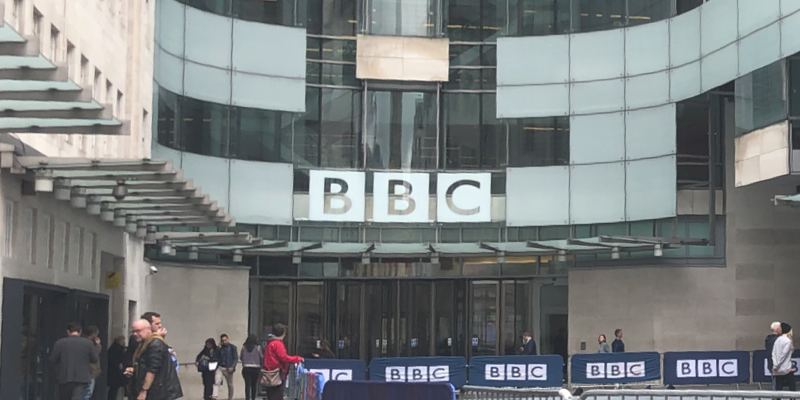
BBC Licence to remain free only for those on Pension Credit
Only those people over the age of 75 receiving Pension Credit will continue to receive the BBC for free after a decision made by the BBC Board today.
The Government’s current scheme comes to an end next year and Parliament – through legislation – gave the responsibility to the BBC Board to make this decision.
From June 2020 any household with someone aged over 75 who receives Pension Credit will be eligible for a free TV licence funded by the BBC. Around 1.5 million households could be eligible.
The BBC Board says it believes this is the fairest option to help the poorest pensioners.
AudioUK, which represents UK independent audio production companies, commented on the announcement.
Will Jackson, Managing Director of AudioUK, said: “Given the need to target the Licence Fee concession to the most vulnerable, linking the policy to the Government’s Pensions Credit is both sensible and fair.
“Bearing in mind that BBC Radio is particularly valued by older people, we will continue to have discussions at the highest level of the BBC to maintain budgets to provide a range wide range of high-quality radio and audio content.”
The Government’s current scheme for over 75s TV licences comes to an end next year. After major consultation, Board believes allowing those receiving Pension Credit to get free licences is fairest option: https://t.co/ZslDnDJQpv pic.twitter.com/7r87hrVnMI
— BBC Press Office (@bbcpress) June 10, 2019
The new scheme will cost the BBC around £250 million by 2021/22 depending on the take-up of the new scheme. The cost of this new scheme will require the BBC to divert some spending on programmes and services, alongside continuing to find new savings while expanding its commercial revenue to cope. The decision does, however, prevent closures of services which would have been required had it copied the Government’s scheme.
BBC Chairman Sir David Clementi says: “The BBC has conducted the biggest and most wide-ranging consultation in its history. It has proved invaluable in helping the Board make its decision. While many supported copying the Government’s concession – so that all over 75s received a free TV licence – there was also strong support for reform. There was least support for abolishing the concession entirely.
“Ultimately, the Board did not think it right to abolish all free TV licences. While research suggests pensioners are now better off than they were when the concession was first introduced nearly 20 years ago, the simple fact is that many are still in poverty – and many want the companionship the BBC can provide. This was a point made by many and we listened and ruled abolition out.
“Copying the current scheme was ultimately untenable. It would have cost £745 million a year by 2021/22 – and risen to over one billion by the end of the next decade. £745 million a year is equivalent to around a fifth of the BBC’s spending on services. The scale of the current concession and its quickly rising cost would have meant profoundly damaging closures of major services that we know audiences – and older audiences in particular – love, use, and value every day.
“Many stakeholder responses to our consultation questioned the BBC’s ability to fund such a concession and continue to offer high-quality services. Indeed, a significant number thought the Government should continue to fund it – an option not open to the BBC. The Government could, of course, choose to step in and close the gap from their own resources.
“Linking a free licence for over 75s to Pension Credit was the leading reform option. It protects the poorest over 75s, while protecting the services that they, and all audiences, love. It is the fairest and best outcome. It is one we can implement and endorse. This is an outcome that is the fairest possible in difficult circumstances.”
BBC Director-General Tony Hall added: “This has not been an easy decision. Whilst we know that pensioner incomes have improved since 2000, we also know that for some the TV Licence is a lot of money. I believe we have reached the fairest judgement after weighing up all the different arguments. It would not be right simply to abolish all free licences. Equally it would not be right to maintain it in perpetuity given the very profound impact that would have on many BBC services.
“This decision is fairest for the poorest pensioners. Around 1.5 million households could get free TV licences if someone is over 75 and receives Pension Credit. It protects those most in need. And importantly, it is not the BBC making that judgement about poverty. It is the Government who sets and controls that measure.
“It is fairest for all audiences – of all generations, old and young – who we know value the BBC and the programmes and services we provide. It means these services can continue.
“We also need to look at how the level of the licence fee is set in the future. The last two settlements have been made in the dark and without proper consultation. It is vital that future decisions are evidence-based and made after proper consultation and scrutiny. We need to find a better way.”
The changes will come into effect on 1 June 2020. People aged 75 or over will remain fully covered by their existing free licence until 31 May 2020.
The Government’s current scheme comes to an end next year and Parliament – through legislation in the Digital Economy Act 2017 – gave the responsibility to the BBC Board to make the decision about the future.
The BBC Board has today announced its decision on the future of free TV licences for the over 75s. pic.twitter.com/LwkxhiOcbq
— BBC Press Office (@bbcpress) June 10, 2019
Posted on Monday, June 10th, 2019 at 3:03 pm by Lee Price


